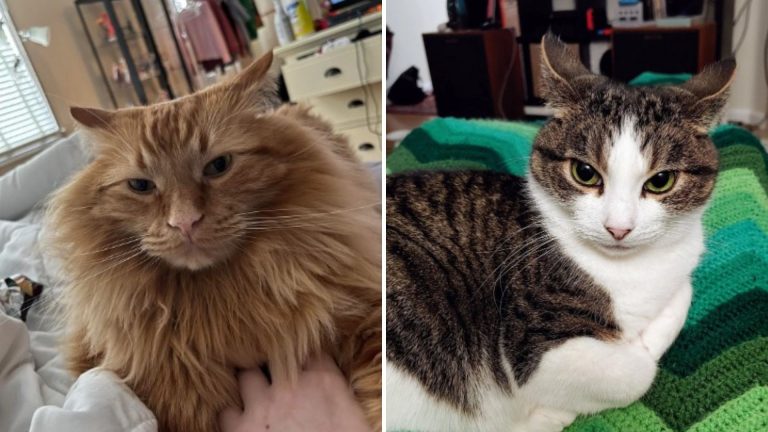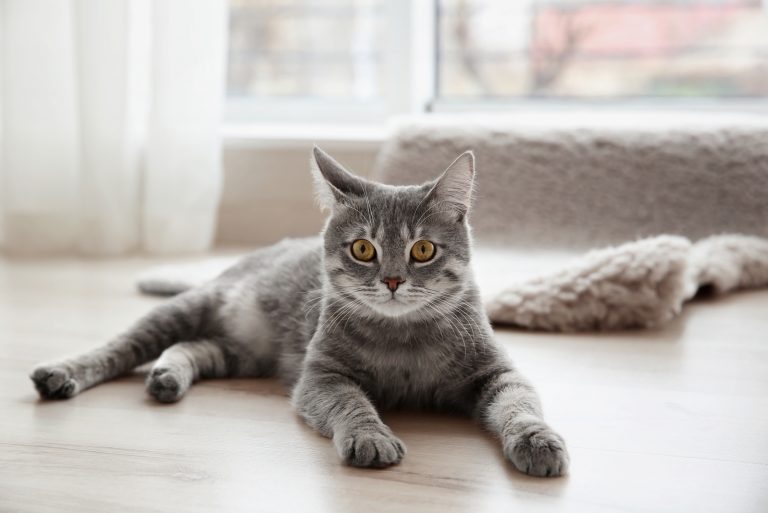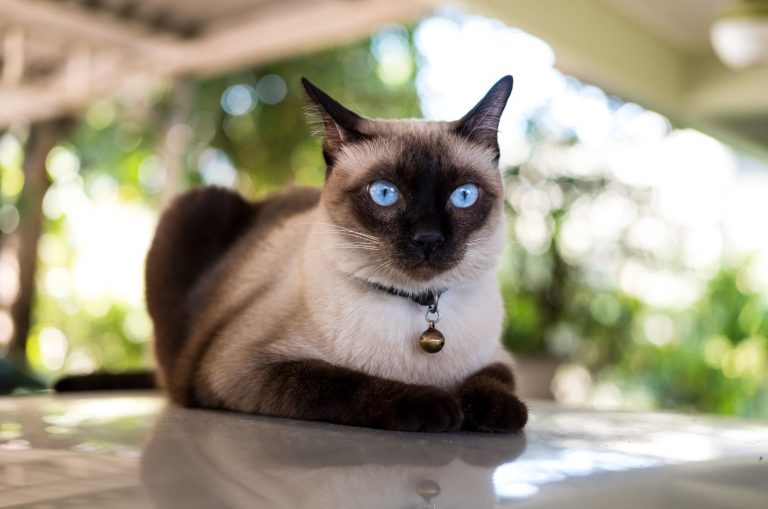Why My Cat Won’t Leave Me Alone? 10 Possible Reasons + Solutions
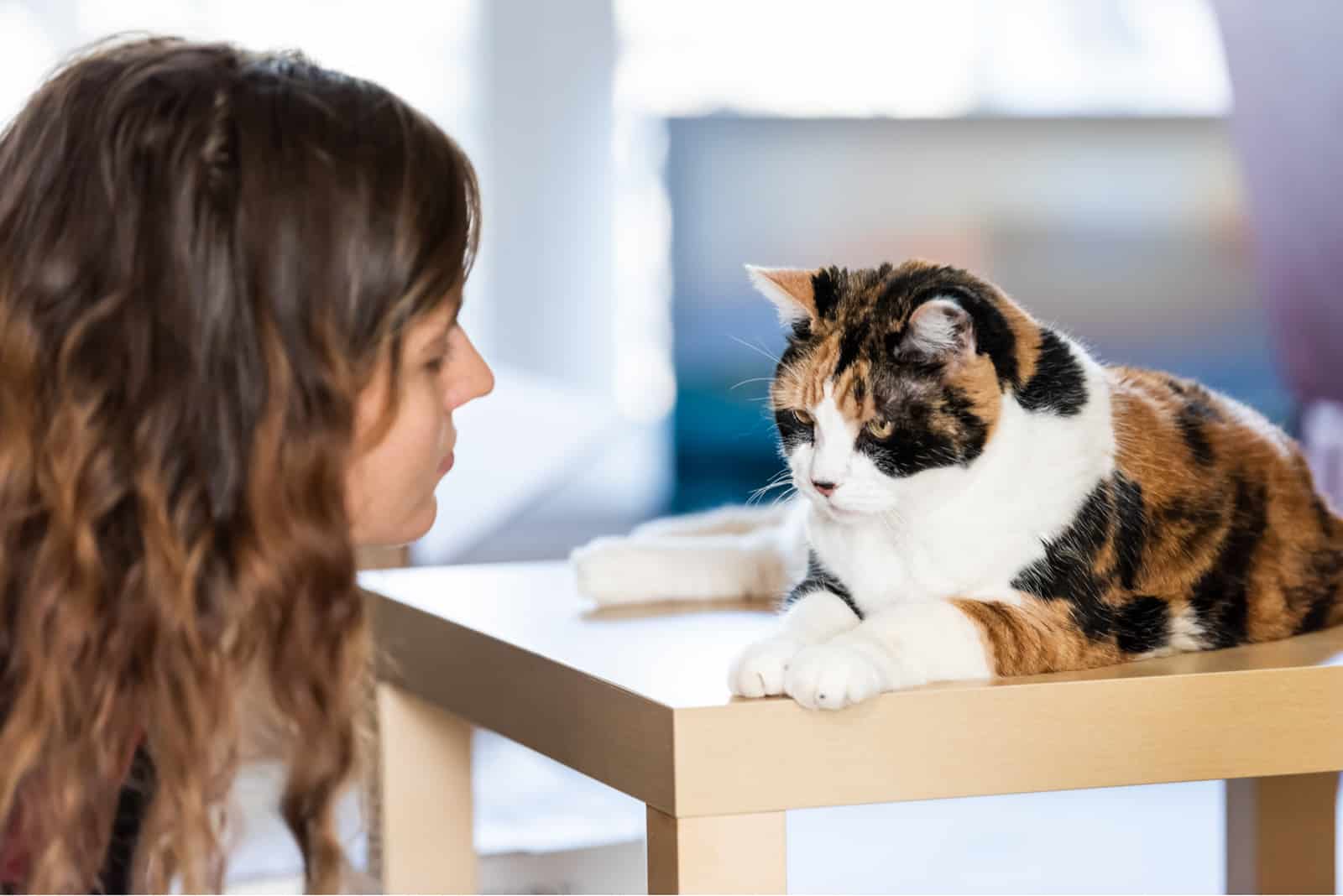
Having your cat follow you around is sometimes cute and fun, but for them to do it suddenly and constantly? Nope. It can become really irritating, especially if they are getting under your feet or interfering with your ability to do your work.
Sometimes, my cat won’t leave me alone and it can be the worst. I step on his tail or trip over him, he gets annoyed with me, and all in all nothing good comes out of it (lol).
Clingy behavior is common for cats, for some more than others. This may depend on the breed. The Maine Coon, for example, is prone to clinginess. Why won’t your cat leave you alone? Let’s take a look at the top 10 causes and 10 solutions that I have discovered since my cat decided he won’t leave me alone.
Below you will find the 10 most common reasons for your cat’s clingy behavior, and also 10 solutions that will definitely help you curb that behavior.
All Of A Sudden My Cat Won’t Leave Me Alone
Your cat suddenly starts following you everywhere you go. They’re constantly with you. Meowing, purring, jumping to your lap. It’s weird, isn’t it? There are several different reasons why your cat might behave in such a way. They could be temporary like boredom, or severe like certain health issues.
Whatever the cause, you’re in the right place. Cat owners should educate themselves on anything that might affect their beloved furry friend and the relationship they have with their owner
10 Reasons Why My Cat Is Clingy
In the list below you will find the 10 most common reasons for clingy cat behavior:
1. Life Changes
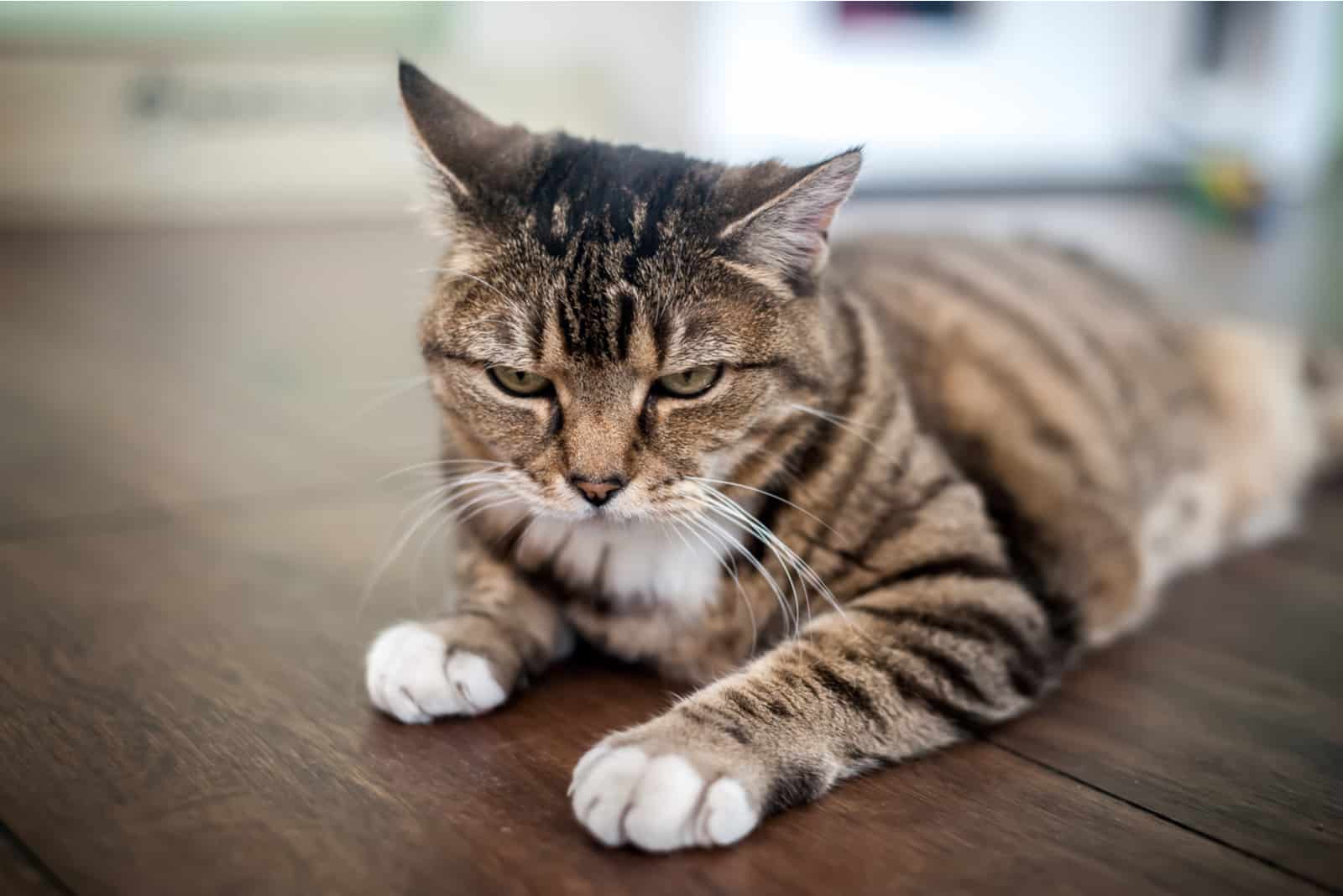
Your cat can become suddenly clingy even though they perhaps ignored you before. Any changes, whether it is a new bowl or litter box, a new home, any new environment, or the introduction of a new family member, can lead to clinginess.
Whenever you are introducing something new to your cat, introduce it slowly and gradually. For example, if you are going to switch its litter, start by mixing the new one with the old one so your cat can slowly adapt.
Or if you are moving to a new home, bring your cat into one room. Only when it adjusts to this new environment should you let them explore the rest of the house.
2. Hunger
A hungry cat is a clingy cat. I have a first-hand example; my cat glues himself to me when it’s time to eat. You need to watch out for this because we all know how cute our cats can be, but you need to have a feeding schedule and stick to it!
If you start feeding your cat whenever they demand it, it can only be damaging for them. You don’t want to spoil your cat and turn it into a boring, demanding cat that yells all the time.
3. Playfulness
If your cat is not clingy all the time, but has sudden changes in its behavior and becomes weirdly attention-seeking, maybe it’s just playtime.
Adult cats can surprise you like this; pet owners sometimes think that once their pet is an adult, they won’t want to play anymore. So it may come as a surprise when your cat goes jumping around you wanting to play.
It’s not only kittens and dogs who like to play, adult cats also, from time to time, want some playtime with you.
4. Anxiety

I know it sounds terrible, but it’s true. Our beloved feline friends can get stressed and experience anxiety, just like us. Anxiety is highly present in cats, especially in rescue cats. Rescue cats often don’t spend enough time with their moms, and this leads to anxiety which then manifests in clingy behavior.
Such behavior almost always goes side by side with anxiety; this is because your cat starts bonding with you and considering you as a mother figure.
Your cat feels safe around you (after all you provide for them) so it is not that strange that they often start seeing their owners as surrogate parents.
There are other causes of anxiety, like separation anxiety for example.
This usually happens if you leave your indoor cat alone for a prolonged period of time, or you spend a lot of time snuggling with them and then leave abruptly. Siamese cats are particularly prone to anxiety; they love to spend time with their owners so when you’re not around they easily get bored and anxious.
5. Needy Cats
If your cat is needy then you have a problem. They will constantly follow you and want to be with you. If you shut the bedroom door, your cat cries outside, If you go outdoors, it watches on the windowsill… If your cat is too needy, then it might not even eat if you’re not at home.
If your cat is needy, this is not good. It means that your cat is insecure and cannot protect itself. This cat relies completely on its owner.
You can try different methods to prevent this kind of behavior from happening. For example, you can move your cat around. If your cat stands in front of you meowing for cuddles, you pick them up and put them in a spot you want them to be.
It will take some time but, after a while, they will understand what is going on and finally stay in the spot you put them, and you can reward them with a treat.
Another thing you can do is have a fixed schedule for meals, playtime, and bedtime. It is also advisable to provide cat trees and various toys so your cat learns to play without you.
6. Trauma
Your cat, especially if you adopt one, can be clingy from the moment you take them home. The cause for this is usually some trauma from the past. You will need to provide a lot of love and give these cats your attention, but also be careful not to let the clingy behavior persist.
If this is the case with your pet, be patient and wait until your cat learns and adapts to their beautiful new life with you.
7. Spoiled Cat
Cats can easily become spoiled if their owners react to their every demand. Cats meow and ask for meals, water, and playtime, and if you’re ever spending more time at home than usual, they will meow even more to demand even more attention from you.
I know this is certainly true in my house; my cat rushes to his food bowl every time I get home from work or classes.
It doesn’t matter if he’s just eaten, he still demands to be fed as soon as I get home.
Cats learn pretty quickly, and if you give in to their every demand then they get used to it. They learn that whenever they want something, you will obey their wishes.
8. Health Issues
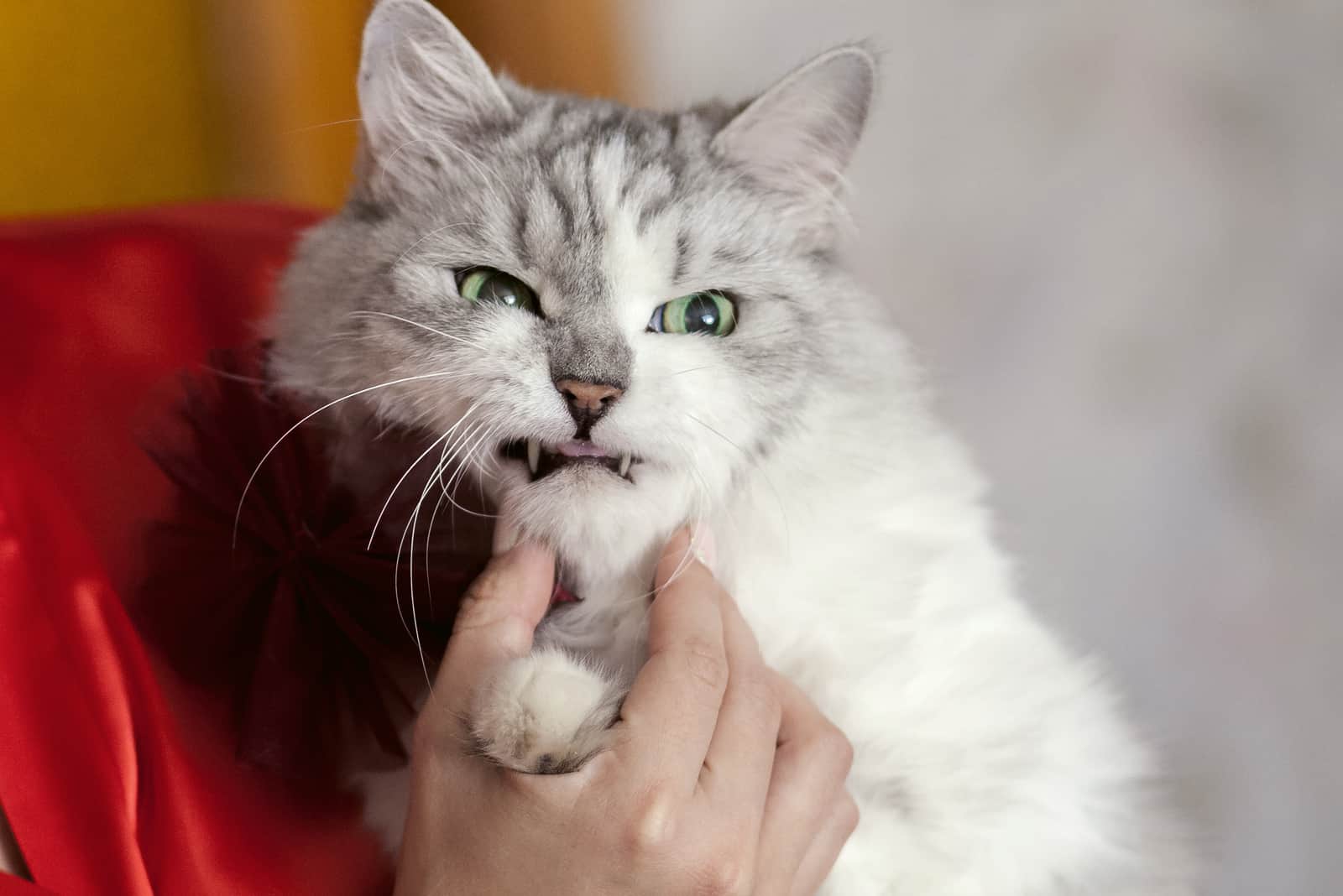
As is common with any weird or sudden behavior in cats, being clingy can mean that there is some health issue that needs a check-up.
If your cat is all of a sudden clingy, there might be some medical issues that need to be dealt with.
You can examine your cat yourself, gently petting and touching your cat all around to see if they will react differently when touched in certain body parts. If you notice anything strange about your cat’s behavior, it is best to consult a vet.
9. Boredom
It’s as simple as it sounds. Your cat can get bored without you, and therefore be very clingy when you are around.
To prevent this from happening, try and find the best ways to keep your cat amused during the day whether you are there or not. Provide them with cat trees and toys. If possible, give them plenty of space to walk and explore.
10. Jealousy
This can be a cause of clingy behavior but also a solution for it. It all depends on the cat because no two cats are the same.
If your cat becomes clingy when a new pet is introduced, then you know that your cat is jealous and it may not be the easiest thing to form a friendship between the two. However, if your cat’s clinginess decreases with another pet, then this is the best thing ever. Your cat will even be less anxious because they will have another pet to hang out with.
Top 10 Ways To Deal With Cat’s Clingy Behavior
In the list below you will find best solutions for clingy cat behavior:
1. Loud Noises
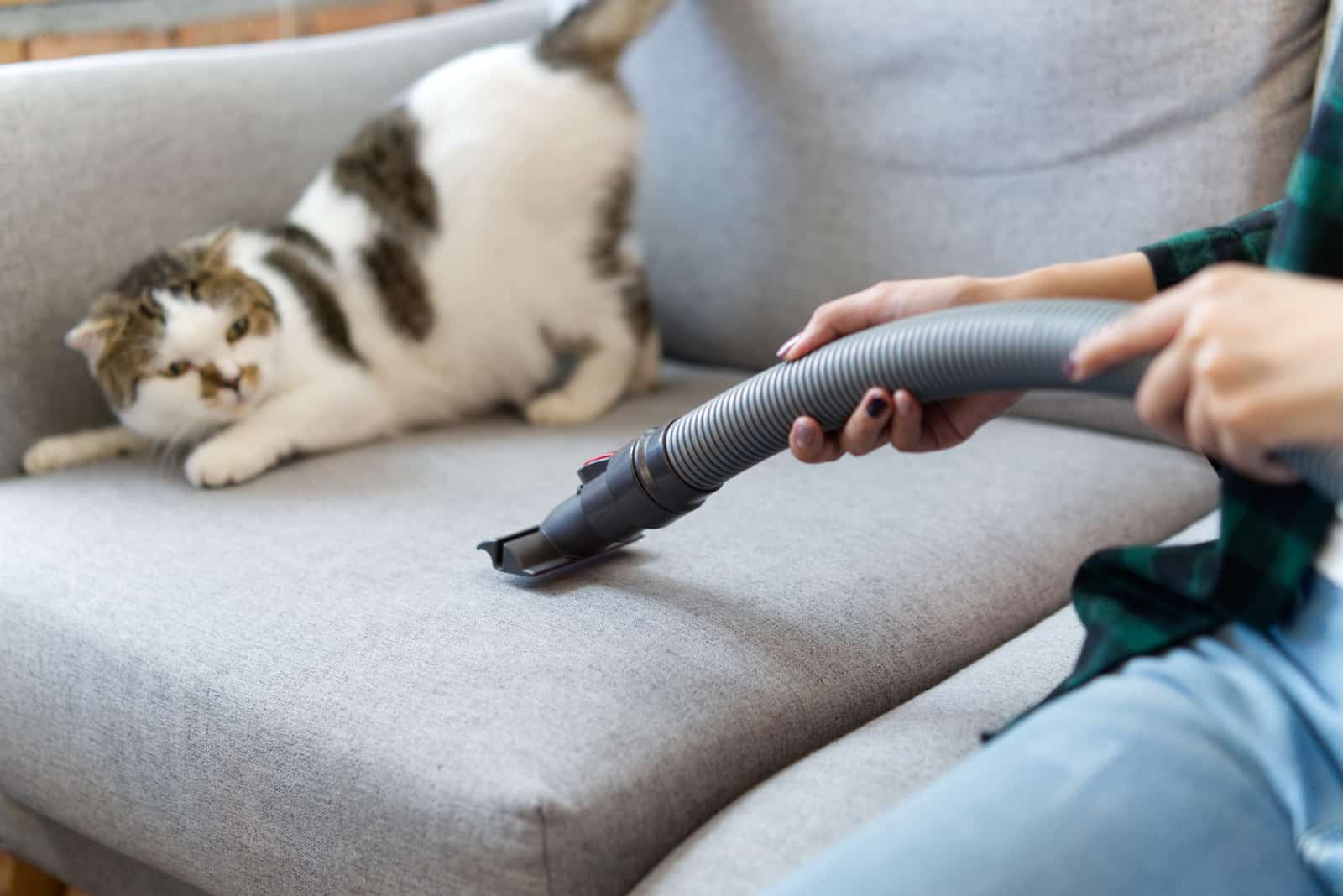
Making loud noises is, of course, a temporary solution for temporary clinginess. If your cat is suddenly too clingy and won’t leave you alone, try making loud noises so they run from you.
You need to be careful not to scare your cat, but making that one noise your cat doesn’t like is an effective way to train your cat and stop clingy behavior.
2. Training & Routine
Have a regular schedule. Create a routine with your cat in your everyday life.
There is nothing a cat loves more than routine. Cats love their sleep schedule and they prefer meal times to be punctual. It is also good to have a regular playtime schedule.
Cats learn pretty quickly. Again, it depends on the breed, but cats are generally very intelligent creatures. It is easy and fun to train them, and this can be helpful in dealing with clinginess.
3. The Silent Treatment
If your cat simply won’t leave you alone, give them the silent treatment. It is not easy to ignore your cat’s cute face, but too much love and attention is not good for either of you.
You don’t want to spoil your cat, so if you start spending too much time with your cat try and ignore them. When your cat sees that you are not reacting to their demands, they will quit bugging you.
4. Perfumes Your Cat Dislikes

Same as with noises, you can use some perfume you know your cat doesn’t like, or spray some scents the cat does not like around the room you want to be in.
Always make sure you don’t use anything that could be toxic for the cat, but just not to their taste.
5. Check Cat’s Health
Sudden clingy behavior can be associated with health problems, so it is always a good idea to consult a vet about it.
6. Distract The Cat
Toys, cat trees, even simple cardboard boxes, cats love it all. Sounds simple, but it is an effective solution for your problem.
Keep your cat distracted and busy, and soon you will catch a break and your cat will be content.
7. Adopt Another Pet
Again, if you are sure your cat is not jealous and won’t get anxious because of other pets, adopt another!
Your cat will, in most cases, be happy with the arrival of a new cat. When you are not home, your cat will not be bored and alone. This will hopefully mean they are not as clingy when you are at home.
8. Boundaries

It is perfectly fine to have a room in your house, or a corner somewhere, that your cat is not allowed to enter.
It is good to set boundaries so that you have your own spot and your cat has theirs.
9. Do Not Feed Around The Food Bowl
You heard it! Do not feed around the bowl, meaning, do not put food anywhere except in the food bowl. People tend to give bites of their meal to cats, while they are still sitting at the table.
And then you ask why won’t my cat leave me alone? Well, here’s why; you give food to it anywhere without any rules!
Cats need their meal time and space scheduled and firm boundaries set about begging.
10. Cat Spot
This is always a good idea because your cat needs its privacy too.
Sometimes you will have people over and your cat might not feel safe or friendly towards everyone, so it is good for them to have their own little safe place.
You have your own spot, maybe for work or studying, where your cat is not allowed. So your cat should have its own spot. This is key to a healthy relationship between you and your cat.
Final Words
To conclude: my cat won’t leave me alone, lol, but after this research, I am sure one of these solutions will work fine for me, and for you too.
All cat lovers love to snuggle and cuddle with their feline friends, however, clingy behavior is not good and it is not always easy to deal with.
Especially on a work day!
You go to the bathroom, your cat comes in for a poop too. You go to eat, your cat meows at your ear. You’re working from home, or studying, and you cannot concentrate because of your cat’s behavior.
There can be many consequences of this. This article provides the top 10 solutions for your cat’s clingy behavior and also 10 explanations why your cat won’t leave you alone. Hopefully, I’ve answered your question why my cat won’t leave me alone, and I am sure one of these solutions will help you deal with it.
It is not easy ignoring your pet, or starting to set boundaries or begin training, but it is better for your cat, and you! Good luck.


